If your Windows PC turns off randomly, or if your PC shuts down automatically after a few minutes, the solutions provided in this article will help you. This issue is serious because you lose your unsaved work when your Windows PC shuts down randomly. There can be multiple causes of this issue; hence, you may need to apply several fixes.
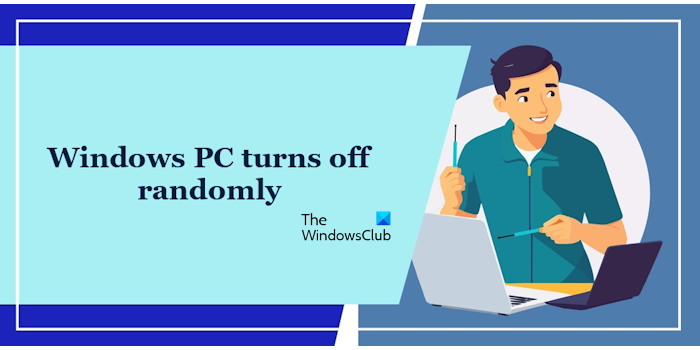
Why does my PC keep shutting off randomly?
There can be multiple reasons why your PC shuts off randomly or automatically after a few minutes, such as overheating issues, faulty RAM, faulty Power Supply Unit, outdated BIOS, corrupted device drivers, etc.
Windows PC turns off randomly
One possible cause of this problem is overheating, which can have many causes. However, if your Windows 11/10 computer shuts down randomly but is not overheating, take these steps to fix the issue once and for all.
- Disable Fast Startup
- Repair your system image files
- Troubleshoot in a Clean Boot state
- Check the status of drivers in the Device Manager
- Uninstall and reinstall your graphics card driver
- Run the chkdsk scan
- Change advanced power settings
- Run Power Troubleshooter
- Examine the logs in Event Viewer
- Did you overclock your CPU or GPU?
- Disable C-state
- Update or reset your BIOS
- Reset your PC
- Hardware fault
Below, we have explained all these fixes in detail.
PC shuts down automatically after a few minutes
1] Disable Fast Startup
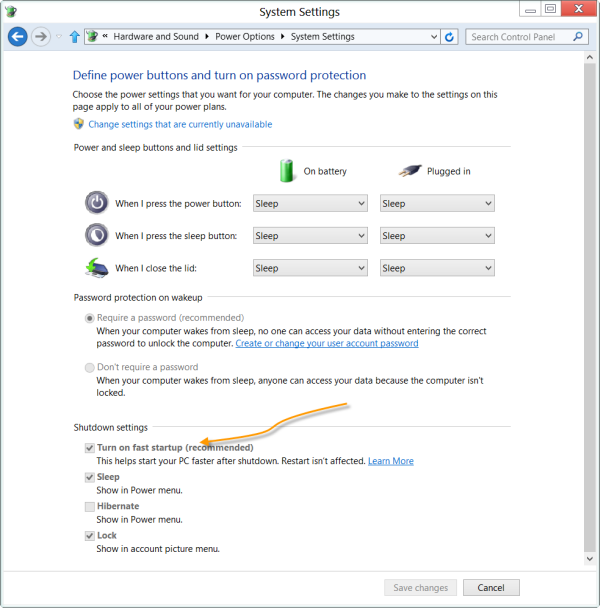
Fast Startup is a feature in Windows 11/10 computers that allows Windows computers to start up faster. Sometimes, Fast Startup causes issues. Therefore, disabling this feature can help. You can check if the problem is occurring due to Fast Startup or not by disabling it.
2] Repair your system image files
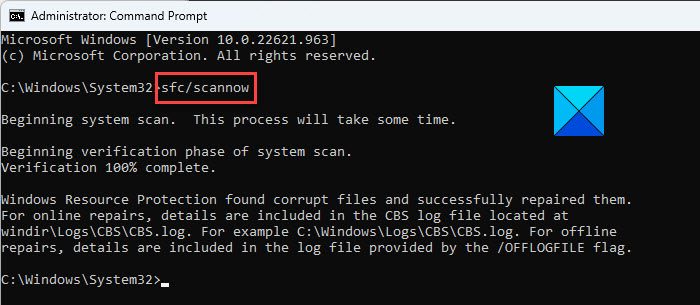
Corrupted system image files cause several issues on a Windows computer. We suggest you repair your system image files by using the System File Checker and DISM (Deployment Image Servicing and Management) tools.
3] Troubleshoot in a Clean Boot state
The problem might be occurring due to a third-party background application or service. To check this, you have to troubleshoot in a Clean Boot state. To enter the Clean Boot state, you have to disable all third-party applications and services. Only disable third-party services because if you disable all the services accidentally, you will get yourself in trouble.
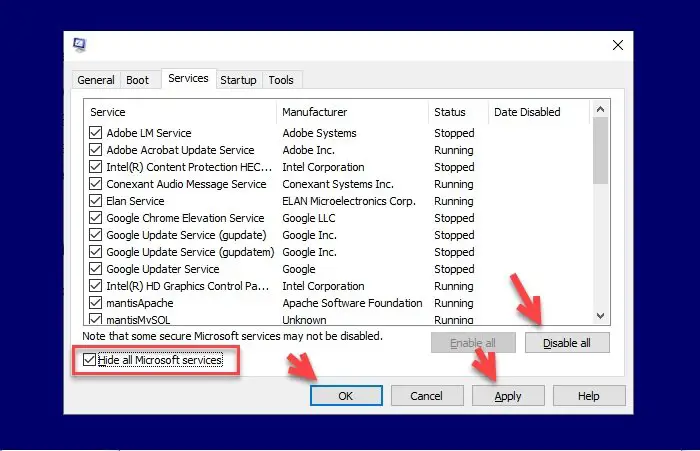
Once you enter the Clean Boot state, monitor your system and see if it shuts down randomly or not. If the problem does not occur in the Clean Boot state, your next step will be to find out the problematic third-party application or service. For this, you have to enable some of the third-party applications and services and see if the problem reappears. Repeat this process until you find the culprit. This process will take time.
Read: Windows computer restarts automatically without warning
4] Check the status of drivers in the Device Manager
Corrupted drivers can also trigger this issue on a Windows computer. Check the status of all the drivers in the Device Manager and fix it. Fixing the drivers can also fix this problem. The steps are as follows:
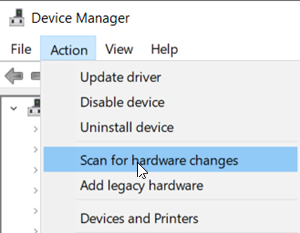
- Open the Device Manager.
- Expand all the branches one by one and see if any driver is showing a warning sign.
- Uninstall the drivers which show the warning sign. To do so, right-click on the affected driver and select Uninstall.
- Now, restart your computer to reinstall the missing drivers. Alternatively, you can also scan for hardware changes.
Related: Windows PC shuts down while installing or uninstalling a program
5] Uninstall and reinstall your graphics card driver
A corrupted graphics card driver can also trigger this problem. We suggest reinstalling your graphics card driver. To do so, first, visit the manufacturer’s website and download the latest version of your graphics card driver from there.
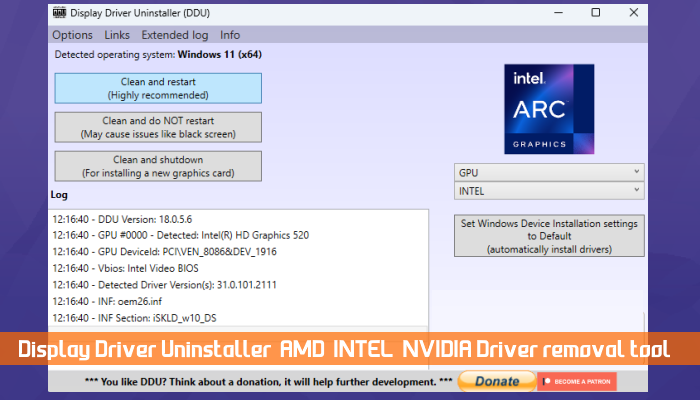
Now, install the DDU (Display Driver Uninstaller) and use it to completely remove your graphics card driver. After that, run the installer file to reinstall your Graphics card driver.
Read: Computer shuts down when installing Windows 11
6] Run the chkdsk scan
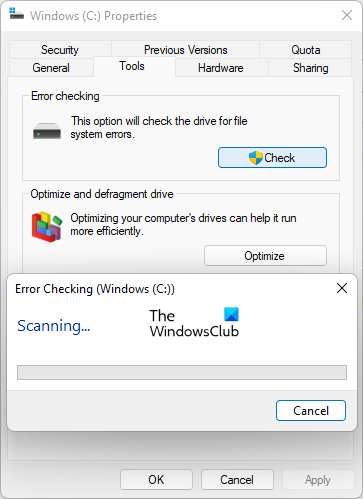
Hard disk errors can also cause issues on a Windows computer. We suggest you run the chkdsk scan to ensure whether there are any errors or bad sectors on your hard disk or not. The chkdsk is a utility in Windows 11/10 that fixes the hard disk errors.
Read: Windows computer turns on by itself randomly
7] Change advanced power settings
If the problem still persists, change the advanced power settings. Follow the instructions mentioned below:
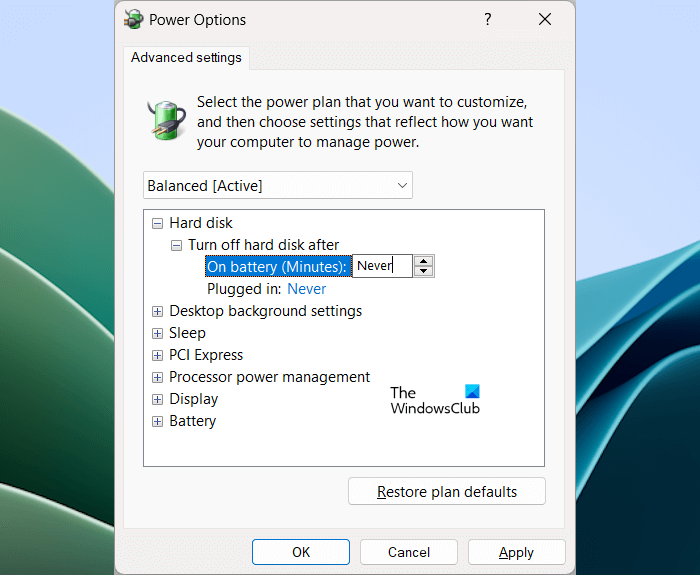
- Open the Control Panel.
- Type power in the Control Panel search bar and select Power Options from the search results.
- Now, click Change plan settings.
- Click Change advanced power settings.
- Expand the Hard disk branch.
- Select Never in both the options.
- Click Apply and then click OK.
Read: PC Monitor turns off after a few minutes randomly
8] Run Power Troubleshooter
To use Power Troubleshooter in Windows 11, follow these steps:
- Press Win+I to open the Windows Settings panel.
- Make sure that you are in the System tab.
- Click on the Troubleshoot menu on the right side.
- Click on the Other troubleshooters option.
- Find the Power troubleshooter and click the Run button.
- Follow the screen’s instructions.
Read: Yellow triangle with exclamation mark on Battery symbol on Windows
9] Examine the logs in Event Viewer
The Event Viewer can help you investigate the cause of this problem. We suggest you read logs in the Event Viewer to know why your Windows PC turns off randomly. Follow the steps provided below:
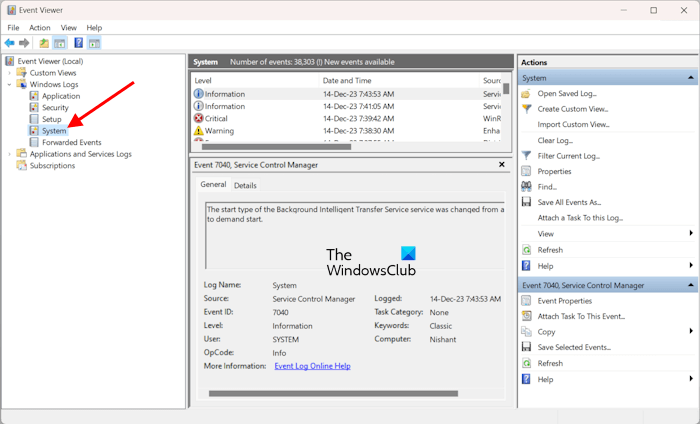
- Open Event Viewer.
- Expand the Windows Logs branch.
- Select System.
Look for the event on the right side that occurred at the time your system shut down unexpectedly. When you see an event, select it and read its information. Based on this information, you can troubleshoot further to fix this problem. For example, Event ID 41 occurs when a system restarts or shuts down unexpectedly. Overheating or hardware issues can trigger this Event ID.
10] Did you overclock your CPU or GPU?
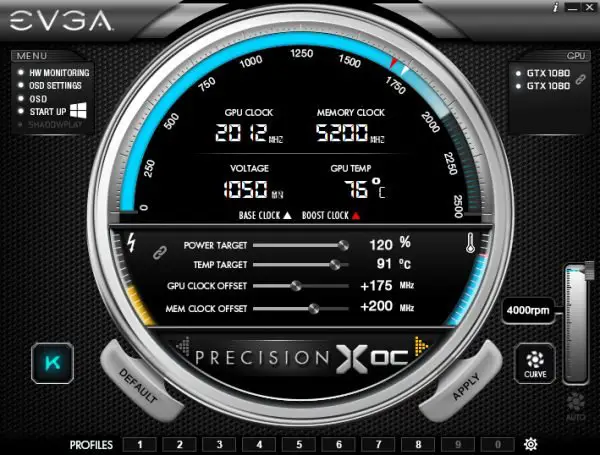
If you have overclocked your CPU or GPU incorrectly, it might be putting more stress on your CPU or GPU and causing your PC to shut down unexpectedly. Disable overclocking on both your CPU and GPU, and then monitor your system to check if it again shuts down randomly. This should fix the error.
11] Disable C-state
The C-state is the state when the CPU has reduced or turned off selected functions. Different processors support different C-states in which different parts of the CPU are turned off. The issue that you are experiencing might be caused by the C-state (if enabled).
C-states are usually developed for laptops to save power. But if you are a desktop user, you can disable C-states. You have to access your BIOS or UEFI to disable the C-state. After disabling the C-state, monitor your system and check if the issue occurs.
Read: Windows computer goes to sleep automatically randomly
12] Update or reset your BIOS
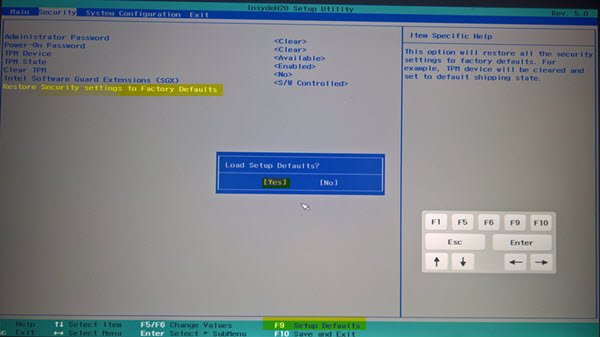
Updating the BIOS can also fix Windows startup and other issues. We suggest you update your BIOS. If updating the BIOS does not help, try to reset the BIOS.
13] Reset your PC
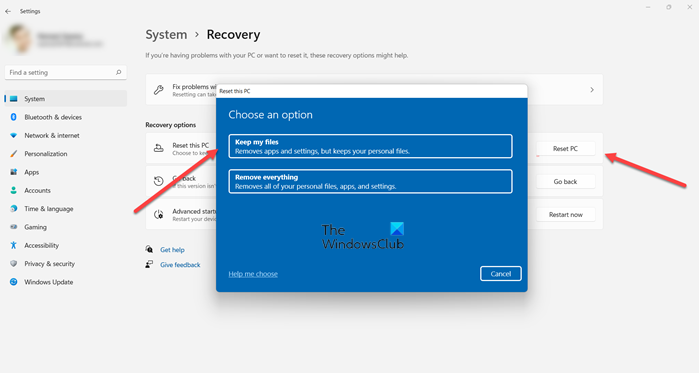
If your Windows PC still turns off randomly, perform a factory reset without deleting your data. This action performs the clean reinstallation of Windows and helps fix issues.
14] Hardware fault
If you have tried all the fixes mentioned above but the problem still persists, your computer might have a hardware issue.
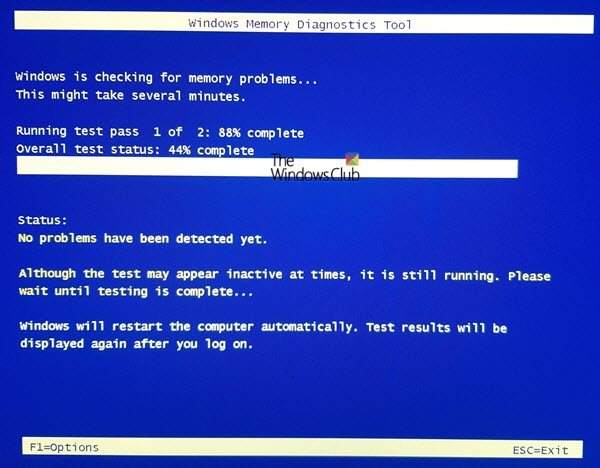
Some of the possible hardware issues that can cause your system to shut down unexpectedly are:
- Faulty RAM: A faulty RAM can cause several issues on a Windows computer. Unexpected shutdown of a Windows PC is one of the signs or symptoms of RAM failure. Therefore, you need to perform a RAM test to confirm this. Windows 11/10 comes with a built-in tool to test the health of RAM, Memory Diagnostic Tool. If your PC has two RAM sticks, there is a possibility that one of the RAMM sticks is faulty. You have to check this manually.
- Faulty Power Supply Unit: A faulty Power Supply Unit can also cause booting issues or random shutdown of a PC. If a Power Supply Unit is faulty, the power delivered to your PC will be inconsistent due to which random shutdown occurs. Check your Power Supply Unit. If it is faulty, consider replacing it.
- Faulty Hard Drive: A faulty hard drive, especially the one on which Windows OS is installed can cause random restarts or shut down. Therefore, the problem might also be associated with your hard drive.
- Faulty motherboard: A faulty motherboard can also be one of the possible causes of this problem. However, the chances of this are less.
If your PC has a hardware fault, you can do nothing at your end. Take your PC to a professional PC repair technician or service center (if your PC is under warranty).
TIP: This post will help you if your computer reboots due to Hardware issues.
Can bad RAM cause shutdown?
Yes, bad RAM can cause an unexpected shutdown. Apart from that, a faulty RAM also shows some more signs and symptoms, like BSOD errors, decreasing performance of a system, etc. If you notice such signs, you need to run a memory diagnostic test to check the health of your RAM.
Read next: PC Monitor turns off after a few minutes randomly.
Leave a Reply